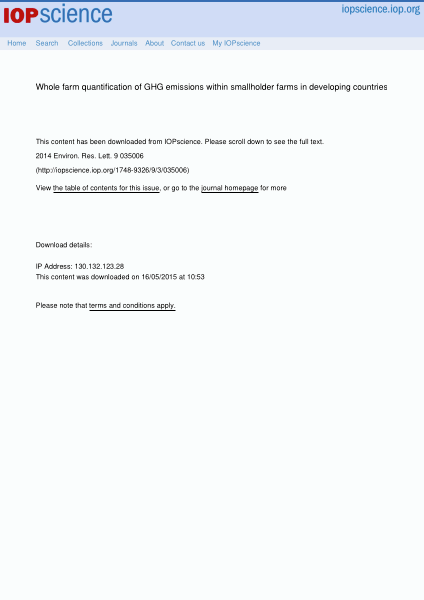Whole farm quantification of GHG emissions within smallholder farms in developing countries
Abstract
The IPCC has compiled the best available scientific methods into published guidelines for
estimating greenhouse gas emissions and emission removals from the land-use sector. In order
to evaluate existing GHG quantification tools to comprehensively quantify GHG emissions
and removals in smallholder conditions, farm scale quantification was tested with farm data
from Western Kenya. After conducting a cluster analysis to identify different farm typologies
GHG quantification was exercised using the VCS SALM methodology complemented with
IPCC livestock emission factors and the cool farm tool. The emission profiles of four farm
clusters representing the baseline conditions in the year 2009 are compared with 2011 where
farmers adopted sustainable land management practices (SALM). The results demonstrate the
variation in both the magnitude of the estimated GHG emissions per ha between different
smallholder farm typologies and the emissions estimated by applying two different accounting
tools. The farm scale quantification further shows that the adoption of SALM has a significant
impact on emission reduction and removals and the mitigation benefits range between 4 and
6.5 tCO2 ha−1 yr−1 with significantly different mitigation benefits depending on typologies of
the crop–livestock systems, their different agricultural practices, as well as adoption rates of
improved practices. However, the inherent uncertainty related to the emission factors applied
by accounting tools has substantial implications for reported agricultural emissions. With
regard to uncertainty related to activity data, the assessment confirms the high variability
within different farm types as well as between different parameters surveyed to
comprehensively quantify GHG emissions within smallholder farms.

